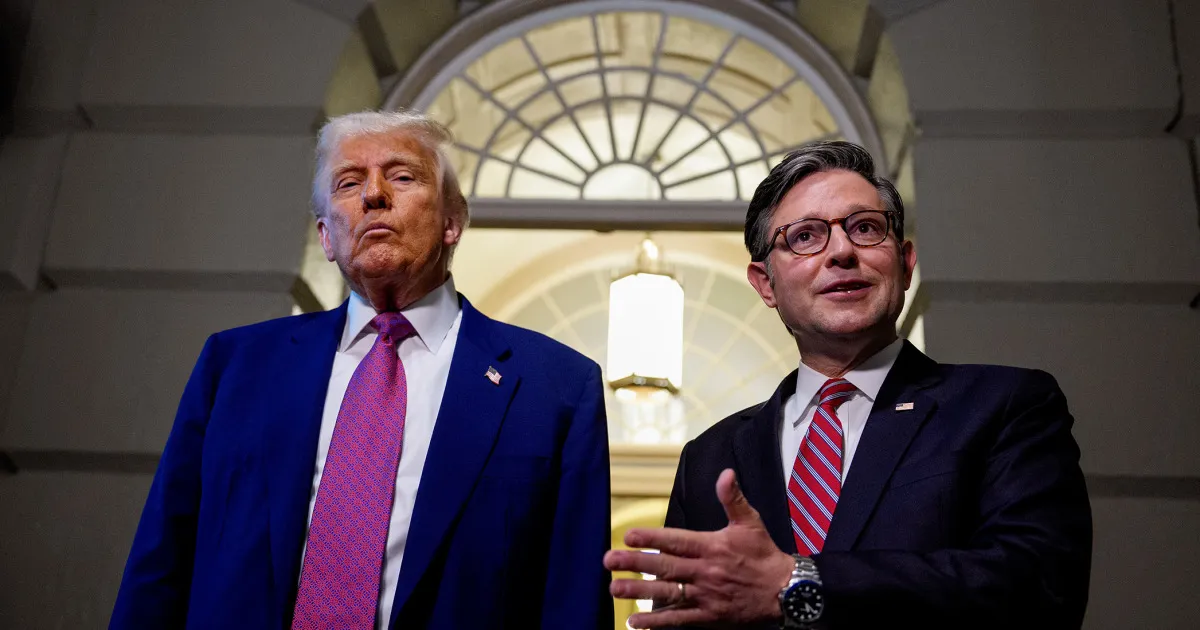
In a closely contested vote on Thursday, the Republican-led House passed a proposal from former President Donald Trump aimed at canceling $9.4 billion in previously approved federal funding. The vote concluded with a narrow margin of 214-212. This rescissions package seeks to reclaim $8.3 billion allocated for foreign aid and $1.1 billion designated for the Corporation for Public Broadcasting, which is critical for funding NPR and PBS.
This legislative move is part of a broader initiative by the White House to implement spending cuts recommended by the Department of Government Efficiency, a department notably led by tech billionaire Elon Musk. Just before the vote, Trump urged GOP lawmakers on social media to support the bill, declaring, “The Rescissions Bill is a NO BRAINER, and every single Republican in Congress should vote, ‘YES.’ MAKE AMERICA GREAT AGAIN!”
Despite the strong push from Trump, four House Republicans—Mark Amodei of Nevada, Brian Fitzpatrick of Pennsylvania, Nicole Malliotakis of New York, and Mike Turner of Ohio—joined 208 Democrats in opposing the measure. Interestingly, some GOP members changed their votes from “no” to “yes” as the vote progressed, realizing the bill's passage was at stake. The proposal will now advance to the Senate, where it can be passed along party lines, as it is not subject to the 60-vote threshold.
While some Republicans support the rescissions package, notable figures such as Sen. Susan Collins of Maine have expressed apprehensions regarding potential cuts to PEPFAR, the Bush-era initiative designed to combat HIV/AIDS, which has been instrumental in saving millions of lives in Africa. Additionally, Sen. Lisa Murkowski of Alaska has voiced her opposition to cuts affecting the Corporation for Public Broadcasting. She emphasized that many communities in her state depend on public broadcasting for essential services, stating, “Not only would a large portion of Alaska communities lose their local programming, but warning systems for natural disasters, power outages, boil water advisories, and other alerts would be severely hampered.”
Critics argue that the proposed $9.4 billion in savings is minimal when compared to the $2.4 trillion in new deficits projected by Trump’s One Big Beautiful Bill Act, as assessed by the nonpartisan Congressional Budget Office. Republican leaders aim to push this larger bill through the Senate by the upcoming July 4 deadline.
House Minority Leader Hakeem Jeffries, a Democrat from New York, has condemned the rescission package, labeling it as “reckless.” He asserted that it would “undermine America’s national security, hurt our ability to protect the American people.” Jeffries criticized the Republican agenda, claiming it seeks to divert billions away from vital national security efforts to fulfill “some extreme ideological crusade” associated with Musk’s initiatives.